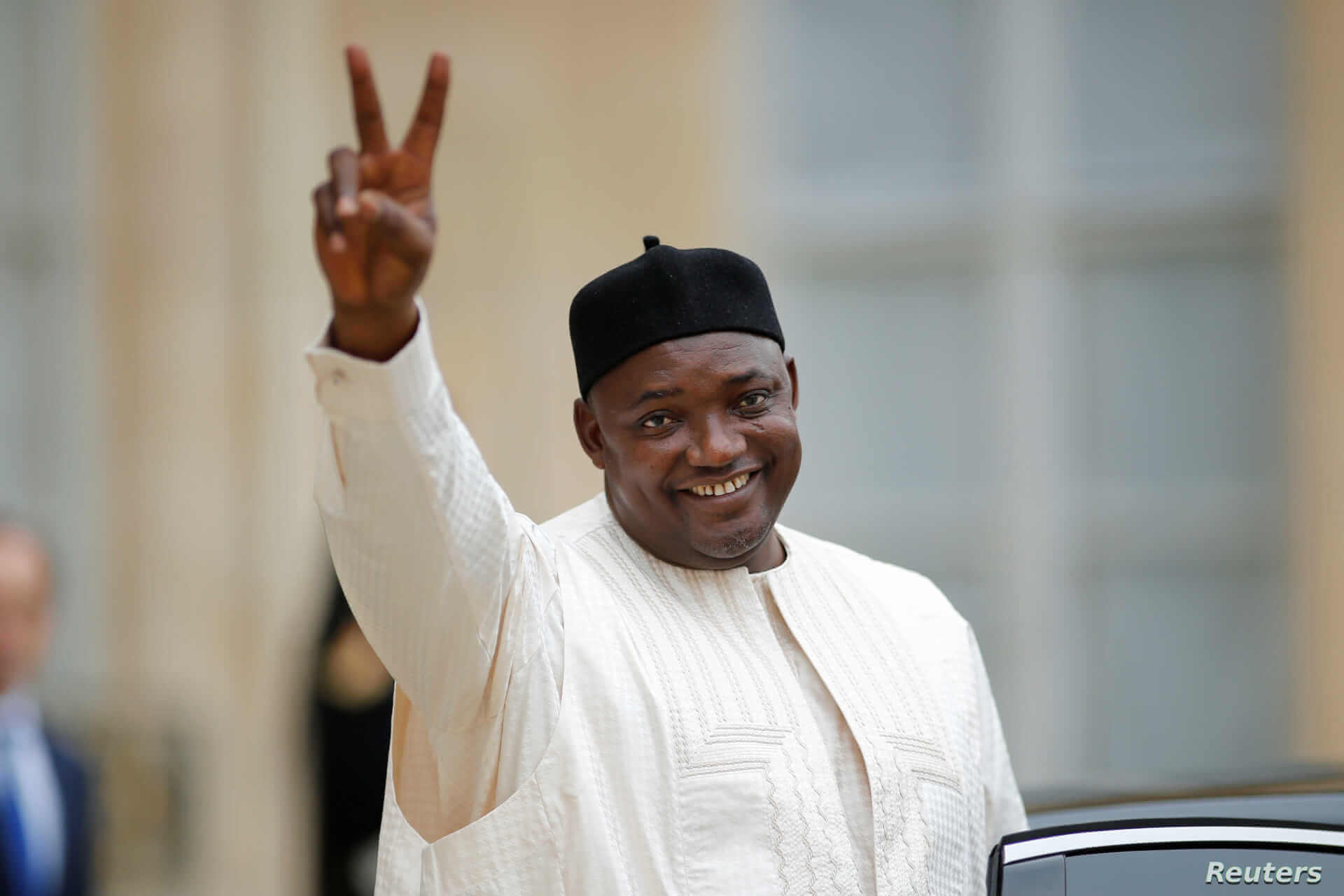In preparation for Gambia’s presidential election on December 4, President Adama Barrow launched his own political party, the National People’s Party (NPP), over the weekend to boost his bid to secure re-election. In front of a large audience at the Independence Stadium in Bakau, Barrow noted that the NPP will be a “party of all categories, based on the notion of true democratic and patriotic citizenship”.
The announcement has been in the offing for a few months now, given that Barrow officially registered the party with the Electoral Commission (EC) last year. Barrow first took power in 2016 as the head of a transitional coalition government after defeating the now exiled Yahya Jammeh, who had been in power for 22 years. At the time, he pledged to step down after three years, but then reneged on this promise and said that he would stand for re-election in 2021.
This decision resulted in the ‘Operation 3 Years Jotna Movement’, wherein citizens took to the streets to protest against Barrow’s refusal to honour his earlier promise of stepping down in 2019. In fact, the legitimacy of his government rested on the support of a seven-party coalition, who only backed him because of this promise.
Last September, the Barrow administration and ruling coalition also invited criticism for rejecting an opposition-led proposal to implement a two-term limit on the presidency, worryingly leaving the door open for another dictator like Jammeh. In the wake of Barrow’s decision to launch his own party, however, this coalition may now rest on shakier ground.
In other news, the country’s Supreme Court ruled last week that Jammeh can be prosecuted for human rights abuses committed during the military coup in 1994 that preceded his term in office and also during his 22 years in power. In fact, a Truth, Reconciliation, and Reparations Commission (TRRC) has bee gathering evidence and hundreds of testimonies since 2019.
Nevertheless, there are pockets within Jammeh’s party, the Alliance for Patriotic Reorientation and Construction (APRC), and among the citizenry that are hopeful that the former leader, who has been living in exile in Equatorial Guinea, will return to the country and contest the upcoming election.
Whatever happens, recent proceedings in Gambia are likely to lead to a rise in popular unrest ahead of the presidential election in December. All of this leaves the country’s $1 billion economy, which lost close to $292 million in revenue due to the economic impact of the coronavirus crisis, even more vulnerable. Given that roughly one-third of Gambia’s GDP is dependent on tourism, continued unrest is only likely to further dent the country’s already small coffers.
Gambian President Adama Barrow Launches Own Political Party Ahead of December Election
It is believed that Barrow’s decision to launch his own party is derived from the weakening seven-party coalition.
February 2, 2021

Gambian President Adama Barrow SOURCE: REUTERS
